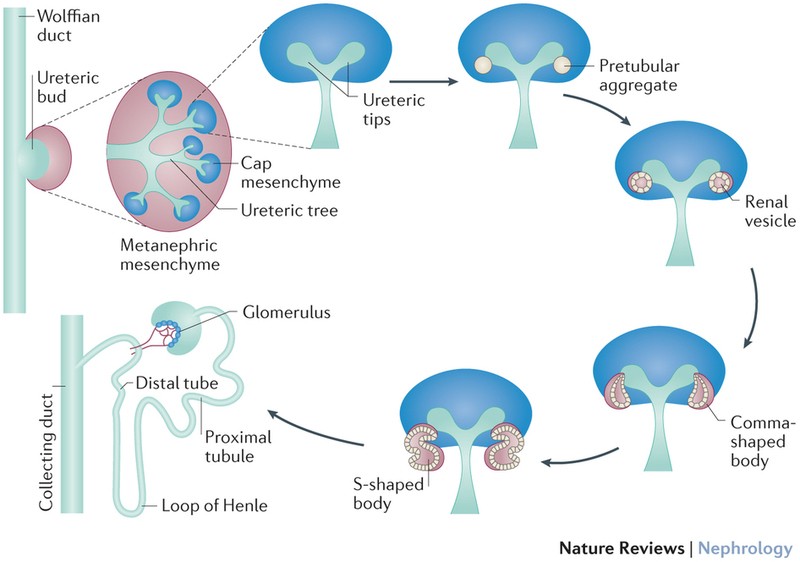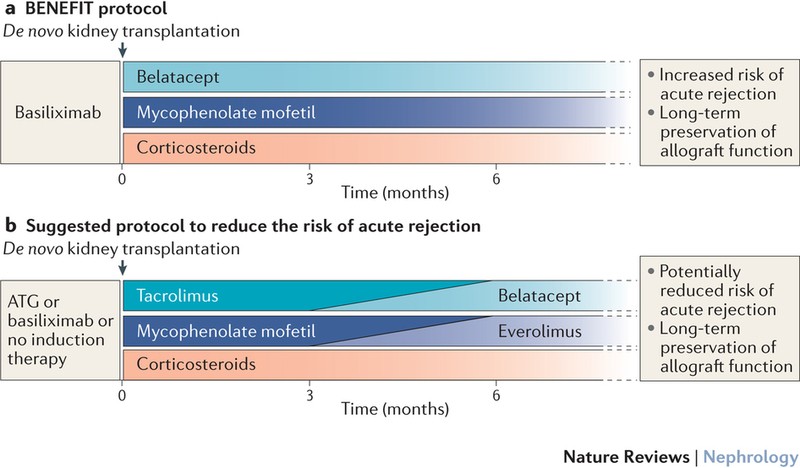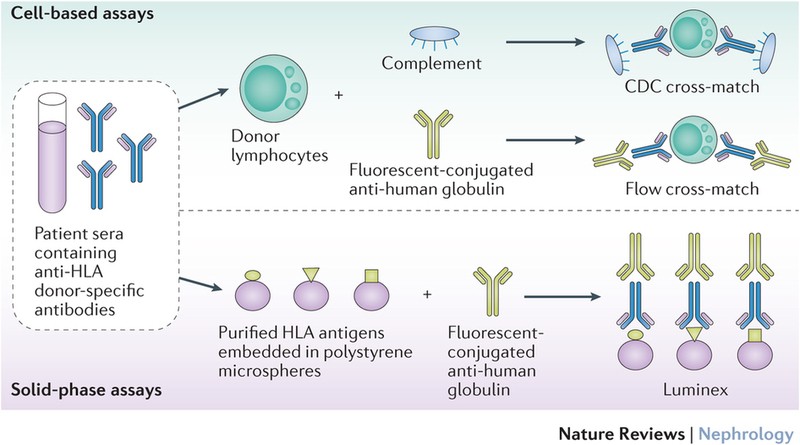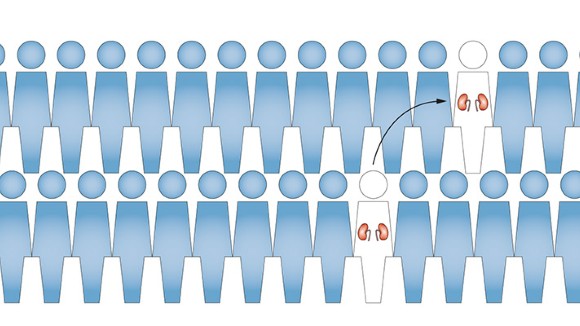Kidney disease in children: latest advances and remaining challenges
John F. Bertram, Stuart L. Goldstein, Lars Pape, Franz Schaefer, Rukshana C. Shroff & Bradley A. Warady
In this Viewpoint, six leading researchers reflect on progress made in their specialist field of paediatric kidney disease. They provide their insight as to the direction research will take in future years, and comment on areas in which additional research or initiatives are required to improve renal outcomes and patient care for the paediatric and neonatal population.

Transplantation: Desensitization and survival in kidney transplant recipients
Caner Süsal & Gerhard Opelz
Elimination of donor-specific antibodies against HLA has been used to enable transplantation of HLA-incompatible kidneys from living donors. In contrast to two previous US studies, a UK study now reports that desensitization does not offer a survival benefit over remaining on the waitlist for a compatible organ.
Renal transplantation in 2016: Novel approaches to improve recipient and allograft outcomes
Paolo Malvezzi & Lionel Rostaing
Kidney transplantation was the focus of numerous publications in 2016. Key studies demonstrated a survival advantage of HLA-incompatible kidney transplantation and suggested that novel approaches such as co-stimulation blockade using belatacept and treatment of antibody-mediated rejection using a C1 esterase inhibitor might prove to be future game changers.

Transplantation: BENEFIT of belatacept: kidney transplantation moves forward
Maarten Naesens & Olivier Thaunat
New data from the BENEFIT study demonstrate that belatacept improves long-term allograft and patient survival after kidney transplantation, despite higher rates of biopsy-proven acute rejection than with ciclosporin. The noninferiority design of BENEFIT represents a feasible strategy to further the development of innovator drugs to reduce late graft loss.
Transplantation: Survival benefits of incompatible living donor kidney transplants
J. Michael Cecka
A single-centre study found that desensitization therapy permits a good success rate of kidney transplantation with an incompatible living donor. Data from 22 US centres now suggest that this technique could be employed across multiple hospitals to prolong the lives of sensitized transplant recipients.

Transplantation: Utilizing the transcriptome to predict allograft fibrosis
Adyr Moss & Bruce Kaplan
A new study has identified a gene set that might predict the development of renal allograft fibrosis. This finding represents a leap forward in transplant diagnostics, but further studies are needed to demonstrate that interventions based on this gene set can prevent fibrosis before it can be utilized to inform therapeutic decisions.
Transplantation: Little effect of state policies on organ donation in the USA
Arthur J. Matas & Rebecca E. Hays
A new study reports that state-level policies have had little effect on rates of organ donation in the USA, highlighting the limited ability of scattered initiatives to have a national effect. Regardless of their impact on donation rate, a need exists for policies that make donation financially neutral for donors.
Transplantation: The vexing challenges of deceased donor organ allocation
Jesse D. Schold & Gerhard Opelz
Kidney transplantation in patients with end-stage renal disease is efficacious, cost-effective, and improves quality of life relative to maintenance dialysis; the availability of donor kidneys, however, is limited. Determining the most appropriate method by which to allocate deceased donor organs in an efficient and just manner poses a complex challenge.
Transplantation: The role of RAAS blockade in kidney transplantation
Robert D. Toto
Blockade of the renin–angiotensin–aldosterone system (RAAS) slows the progression of many forms of kidney disease, but whether this therapy is beneficial in kidney transplant recipients is unclear. A new randomized controlled trial suggests that RAAS blockade is not beneficial in the transplant setting, but the underpowered nature of this study limits its conclusions.
Transplantation: Outcomes of prenatal immunosuppression
Robert H. Mak & Hal M. Hoffman
A new study reports abnormal peripheral lymphocyte counts and an increased incidence of hospital admission for infections among infants born to mothers with kidney transplants. Further studies are required to investigate the effects of in utero exposure to immunosuppressive agents on immune system development and long-term disease risk in this population.
Decade in review—renal transplantation: A spectrum of advances in renal transplantation
Bruce Kaplan
Although the first 50 years of renal transplantation were marked by great advances in immunosuppressive therapies, the past decade has been marked by an unprecedented increase in technology. This progress has spurred investigators to challenge old paradigms and investigate how best to utilize these technologies to further improve patient care.

